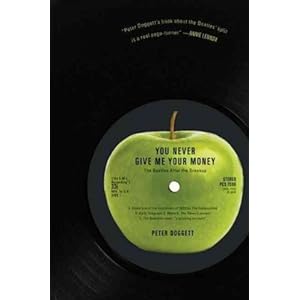
I confess that I don't know much about the small press scene of any area, much less anywhere in the UK, but every once in a while, something really fun turns up that entertains me more than I had expected. Dirk Van Dom's Vanguard, an anthology book with four recurring high-concept adventure stories, was not completely satisfying - one of the four was not to my taste at all - but it's a good example of a writer playing with several very disparate influences and turning them into a consistent package.
That's not to say that it's completely successful, just consistent. There's an incredibly violent strip called Mammoth Jack about an intelligent and bloodthirsty donkey, drawn by Owen Watts, of which I have seen enough. I don't like the lingering, gleeful, lip-licking focus on the gore and the ultraviolence, although I concede that the plot of the first episode blindsided me about three times. That said, none of the art comes from illustrators who are quite ready for their close-up, although Louis Carter's very distinctive and curious, abstract linework on the much more fun Halo & the Griffin suggests that he has no real interest in more commercial illustration for mainstream properties, and would much rather forge his own way, doing nontraditional work like this. It's still doesn't quite look fully formed, but on the other hand, it doesn't really look like anybody else's work either, and so I really like it for its moxie.
The most traditional of the stories is an adventure series, Atomic Call, which features a competent, super-tough lead named Colleen Malone. She's a hired thief in the employ of a legendary con-artist and brothel owner, and she wears a wrist computer like Electra Woman & Dyna Girl. It's just a little too Warren Ellis for me to completely embrace it, although David Blankley draws it fairly well and, while he has a bit to learn, he looks like he's having fun with it, particularly in the second episode, when he gets to set the action in the brothel and draw lots of half-naked ladies. Malone is a fun character and I enjoyed all the subplots simmering in the background, and just how natural all of this feels. While rough around the edges, both Call and the book in general sing with the unforced competence of somebody who's been doing this for a lot longer than Van Dom actually has.
Years and years back, when I thought myself an aspiring comic book majordomo, I was planning to do a four-series anthology, each strip drawn by a different artist. It was going to include Riotstürrm, about an all-girl metal band, Bubba Dershowitz, Redneck Attorney, Jesus Christ, P.I., and something else. Vanguard doesn't bowl me over with every page, but I'm still impressed and a little envious that Van Dom was able to pull this off when I was not. I look forward to the third installment, if for no other reason than to see what will happen with Colleen "Call" Malone next. Recommended for anybody curious about small press comics; clicking the image above will take you to the book's blog to learn more.
PDFs of these comics were provided for the purpose of review. If you'd like to see your comics or detective fiction featured here, send me an email.




